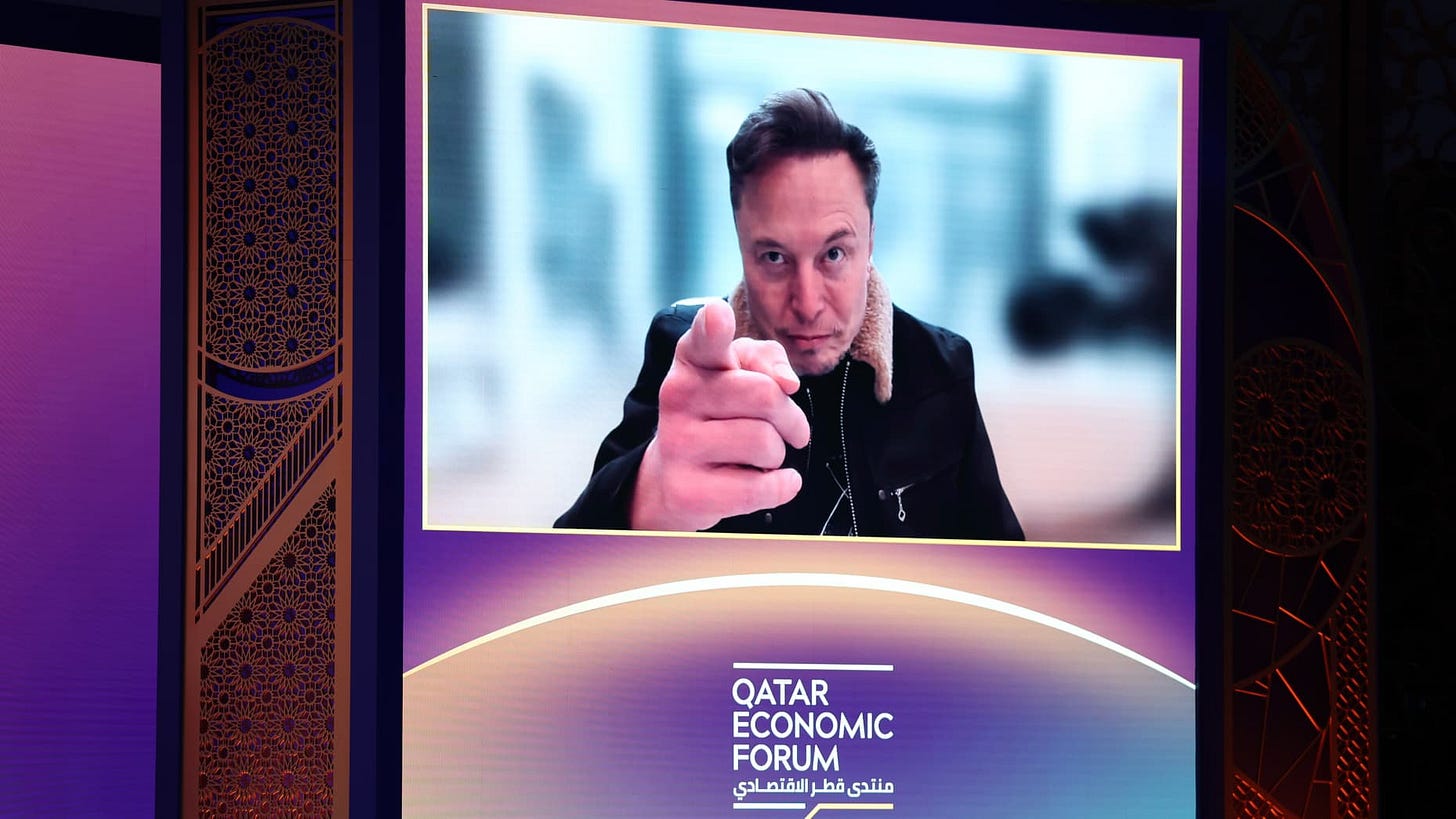Elon Musk’s Political Retreat
What His Exit Signals for Black America and the Future of Billionaire Influence
“In terms of political spending, I’m going to do a lot less in the future. I think I’ve done enough.” — Elon Musk at the Qatar Economic Forum

Elon Musk—the world's richest man and 2024's top political donor—is pulling back from the political battlefield. During a high-profile interview at the Qatar Economic Forum, Musk signaled a dramatic pivot away from the political scene he once tried to reshape with his billions.
For many, this shift may seem like a relief. But for Black communities, it raises urgent questions about billionaire influence, democratic integrity, and what comes next in the fight for justice and equity.
A Look Back: Musk’s Political Power Plays
In 2024, Elon Musk was not just a political donor—he was the donor. The New York Times reports that Musk’s contributions topped $290 million, with most funds flowing to a pro-Trump super PAC he created. His influence didn’t end at the bank. He was also instrumental in crafting Trump’s so-called Department of Government Efficiency (DOGE), a controversial body aimed at slashing federal programs, many of which disproportionately benefit marginalized communities.
Musk’s reach extended to judicial races too, as he pumped $25 million into a failed bid to seat conservative judge Brad Schimel on the Wisconsin Supreme Court—money that went down the drain when liberal judge Susan Crawford secured a decisive win.
This unprecedented financial involvement wasn’t just about influence—it was about engineering a political environment amenable to Musk’s ideology: minimal regulation, weakened labor protections, and a tech-driven, privatized future. In this light, his decision to step back demands interrogation, not celebration.
Billionaires, Black Folks, and the Cost of Influence
Let’s be clear: when the ultra-wealthy steer politics, Black folks often pay the highest price.
Musk's efforts to gut federal programs under the banner of “efficiency” have deep echoes in American history—think of Reaganomics and the hollowing out of the social safety net in the 1980s. Just like then, these policies threaten access to affordable housing, food assistance, education funding, and more.
For Black communities already facing disproportionate unemployment, underfunded schools, and health disparities, these cuts aren’t abstract. They’re existential.
Despite Musk's public retreat, don’t count him out just yet.
He left the door wide open:
“If I see a reason to do political spending in the future, I will do it. But I don’t currently see a reason.”
Translation? He’s still watching, waiting, calculating.
His shift may be driven less by principle and more by pressure—after all, Tesla recently reported a sharp drop in profits, and investors want their CEO focused on the bottom line.
So yes, Musk is stepping back. But it’s likely more “pause” than “peace.”
What This Means for Us
Musk’s exit from center stage may open up political space—but only if we seize it.
This is the moment to:
Invest in Black-led organizing and media
Support local candidates who understand our communities
Push for campaign finance reform to limit billionaire influence permanently
Let’s remember: the people who shape our future shouldn’t be the ones with the biggest wallets—they should be the ones with the clearest vision for justice.
Final Thought: When They Step Back, We Step Up
From Frederick Douglass to Ida B. Wells to today’s Black-led advocacy groups, our people have never waited for power to be handed down—we’ve built it from the ground up.
Elon Musk stepping back isn’t the end of billionaire influence. But it is a moment. A moment to organize. To educate. To lead.
Let’s make the most of it.







